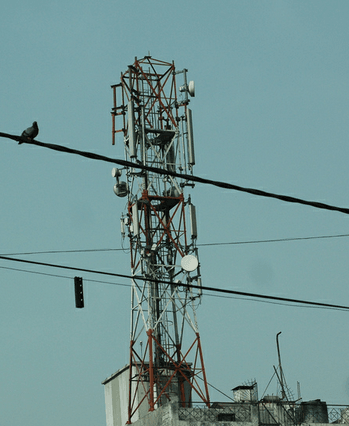Finally the wait is over! Amidst loads of anticipation, the widely followed and discussed Union Budget 2013-2014 is out. In the last few weeks countless articles and discussions put forth their expectations of telecom sector from the Union budget. In this article Telecom Talk takes you through the overall impact analysis of Union Budget 2013-14 on the debt ridden Telecom Sector.
 Love spending on smartphones??? Get ready to shell out more as mobile phones costing more than 2000 will bear 6% excise duty now which was 1% earlier. The phone that earlier cost you 10,000 will now cost approximately 10,500. However in case of low priced phones below 2000, no change in concessional excise duty has been made, it still stands at 1%.
Love spending on smartphones??? Get ready to shell out more as mobile phones costing more than 2000 will bear 6% excise duty now which was 1% earlier. The phone that earlier cost you 10,000 will now cost approximately 10,500. However in case of low priced phones below 2000, no change in concessional excise duty has been made, it still stands at 1%.
“About 70 percent of imported mobile phones and about 60 percent of domestically manufactured mobile phones are priced at 2000 or below. Mobile phones enjoy a concessional excise duty of one percent and I do not propose to change that in the case of low priced mobile phones. However, on mobile phones priced at more than 2000, I propose to raise the duty to 6 percent,” Finance Minister said while presenting the budget speech in Parliament.
The announcement that can be considered favorable for the sector is the custom duty exemption for semiconductor plants. The government proposed zero customs on machinery and plants for semiconductor business in the union budget so as to promote manufacture of semiconductors which is one of the main component of radio, computers and telephones
“The National Electronics Policy 2012 is intended to promote manufacture of electronic goods in India. We recognize the pivotal role of semiconductor wafer fabs in the eco-system of manufacture of electronics. I propose to provide appropriate incentives to semiconductor wafer fab manufacturing facilities, including zero customs duty for plant and machinery”, P Chidambaram added.
This seems to be a good news for the Ministry of Communications and IT as it was looking to attract considerable amount of investment in the electronic sector.
Overall, in our opinion budget 2013 failed to bring any major surprise for the telecom sector. Finance Minister did not address any of the long pending demands of industry including the much awaited ‘infrastructure tag’ to telecom players, high service taxes, spectrum allocation and FDI. There is no denying the fact that telecom sector plays a vital role in the economic development of the country as for every 10% of the population using basic services (voice and SMS) in the country, national gross domestic product rises by 0.5%, and for Internet and other non-voice communications (data), the same penetration adds 1% according to the report by DoT. However, the cancellation of 122 licences last year and high spectrum fee reduced sales across the ecosystem and led to negligible spending in network rollouts. Moreover, sector has been hit by high service tax levies in the recent past.
Although the Union budget 2013 failed to bring clarity on issues that were hindering the growth of otherwise fastest growing industry, we have our eyes set now on National Telecom Policy/Spectrum Enactment act to be announced this year which is expected to address most of the issues concerning Telecom sector.
If you think we’ve missed something, let us know in the comments below.















